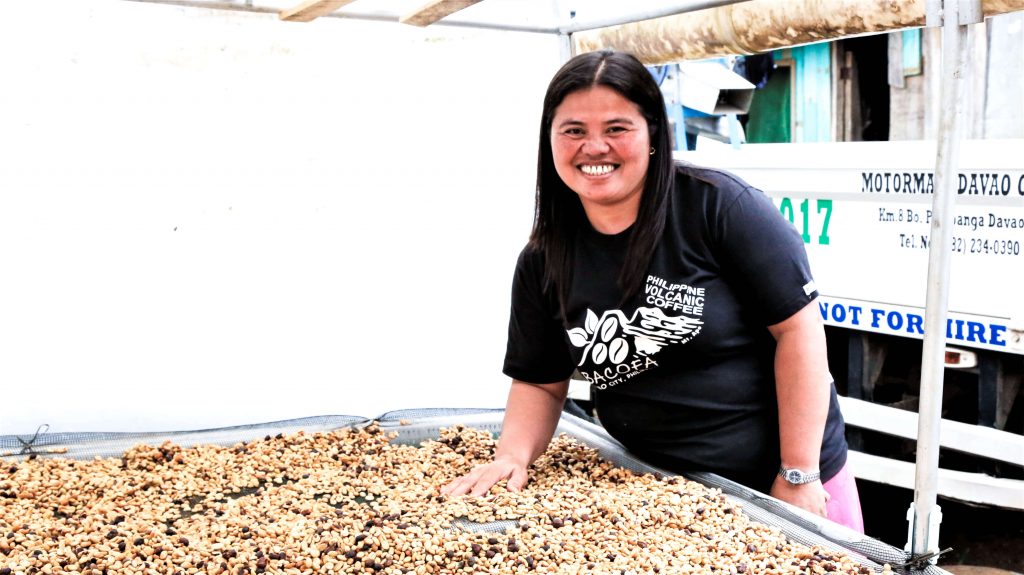COFFEE ROAST TO BOAST
In the southern reach of Mindanao lies the hinterland Purok Pluto, where coffee farms are found essential to the livelihood of over 150 farmers who reside in Sitio Balutakay, Bansalan, Davao del Sur.
Located at the peak of the mountains in Davao Del Sur, Purok Pluto serves as a haven to small coffee farmers who banded together to form the Balutakay Coffee Farmers Association (BACOFA). The farms, reached after a two-kilometer hike from the town proper, take pride in a fertile ground for Arabica coffee.
Different coffee varieties thrive in these areas. Its cool climate and special volcanic soil give coffee beans a prominent flavor and aroma. This gives Purok Pluto, with an elevation of 1,200 meters above sea level, an ideal location for processing specialty Arabica coffee.
At this elevation, the coffee plant produces dense beans that more sought after than beans grown at lower elevations. Dense beans have a higher concentration of sugar which provides a more pronounced taste.
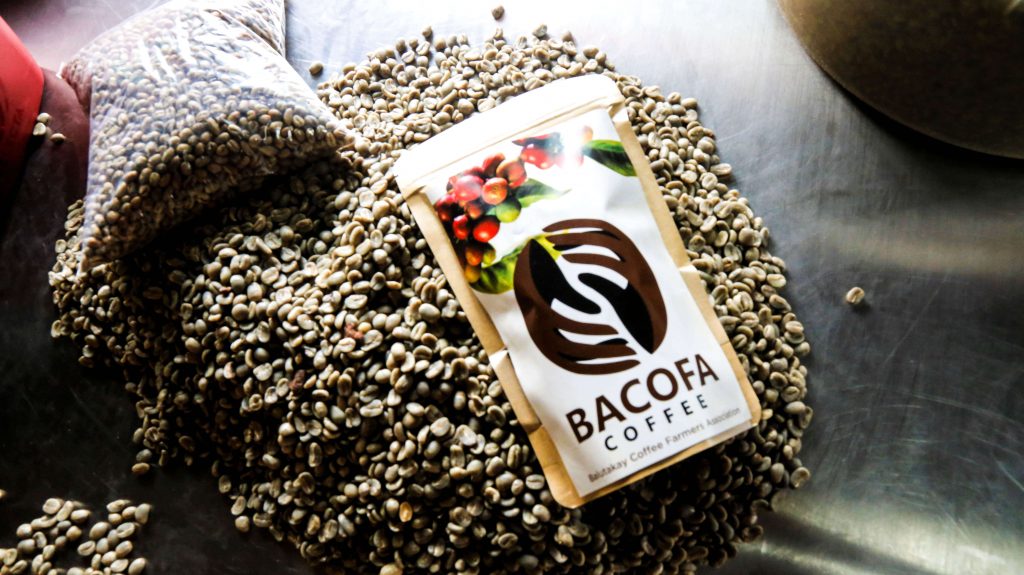
Aroma of Hope
Even though growing coffees in the high altitudes was already a prominent business, never had it occurred to Marivic Dubria, Marketing Manager of BACOFA, that coffee has a great potential in their community when she, together with 19 other farmers, started their association in May 2013.
With high hopes of uplifting their farming livelihood and finding better opportunities for their community, the group had a rough start having obscure knowledge about coffee. Marivic admitted that incorrect practices and improper handling affected the quality and taste of their coffee.
“During those times, we really had no idea how to sell, plant, or even process it. The only market we knew were local traders, and technicians at the onset of our production,” she stressed.
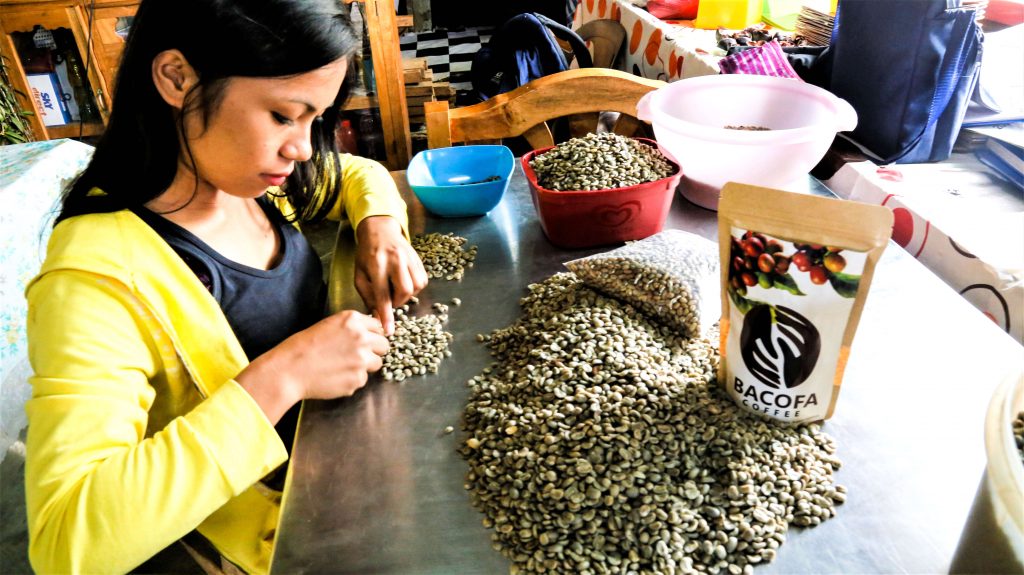
This major challenge lasted until the group made a huge step in gaining coffee quality awareness by attending training sessions and availing themselves of various technical interventions from different organizations including services from the Departments of Trade and Industry (DTI) and Agriculture (DA) and other non-governmental organizations (NGOs) such as the Kapwa Upliftment Foundation. Through the help of these organizations, their attitude towards coffee farming significantly improved.
On 4 October 2017, Marivic Dubria finished DTI’s Kapatid Mentor ME (KMME) Program. This program helped her to properly run the business.
DTI also provided BACOFA with coffee roasting machines under the Shared Service Facilities (SSF) Project, helping them be more efficient in their production.
With the knowledge they gained from trainings and experience, the BACOFA farmers are also planning to help out other groups to produce better quality coffees.
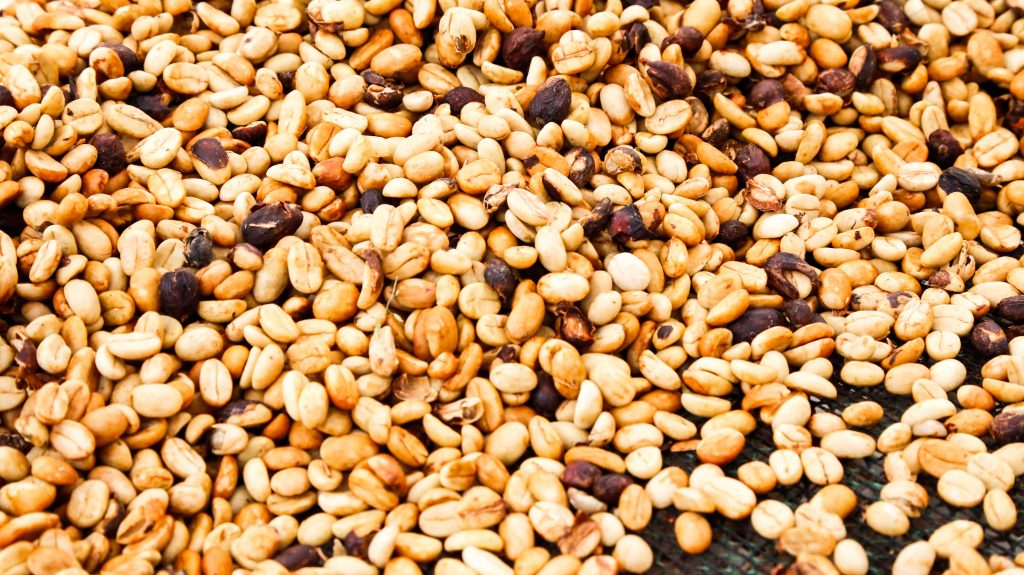
Onto the Top
Upon realizing that coffee processing is a sensitive commodity, they decided that an ideal area is not enough to produce quality coffees.
Proper handling is also essential for the process.
Their farmers underwent training on coffee growing to post-harvest processes with the assistance of the Kapwa Upliftment Foundation, DTI and Coffee for Peace which they finally appropriately applied over the years.
“Our production’s current state is very promising. It has become a huge help to all the farmers, and our customers are always looking for it,” Marivic said.
BACOFA currently supplies big traders globally and is now renowned as specialty coffee by authorities like the Coffee Quality Institute and Specialty Coffee Association of America (SCAA). The industry recognitions the group has earned to date speaks of the quality of the BACOFA brand, including being ranked top during the 2nd National Coffee Conference in Baguio City on 23-25 November 2016.
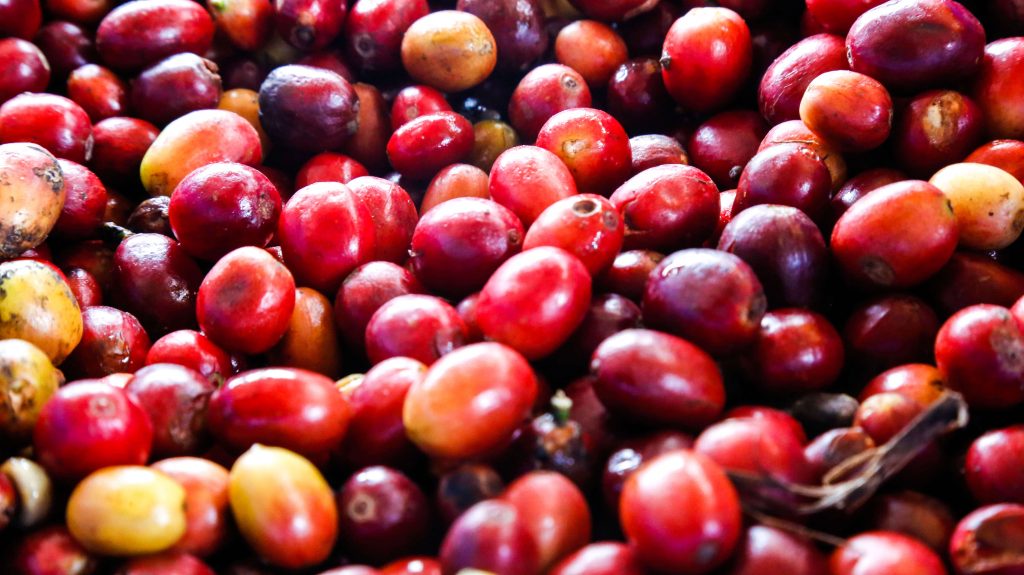
“It is a trend in the coffee market that we should cup the coffees before giving it to the buyers. So, whenever customers ask anything about the process, we need to be honest with it. Being true to your customers is the most important thing,” said Marivic.
While BACOFA is considered successful, Marivic admitted that there is a need to increase productivity to cope with the increasing demand for the product.
“We need to plant more beans to accommodate our buyers and improve all processing with the help of other agencies and the government,” she said.
Bacofa started with 19 farmers and grew to 150 farmers.
Their industry continues to grow as BACOFA farmers continuously adhere to the international standards they have developed through the years. At present, the association has 16 regular buyers in both local and international markets, including popular coffee shops in Manila, Iloilo, Bacolod, and Davao City.
